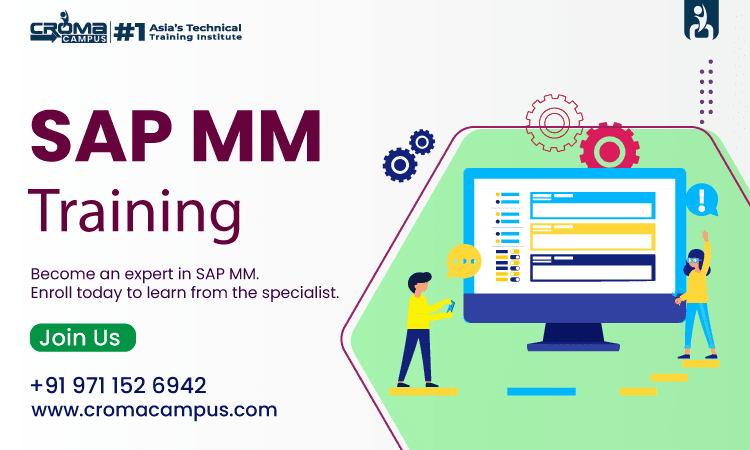Introduction
SAP MM or Materials Management is an essential module from the SAP ERP environment. Materials Management is a core supply chain function that hosts the capabilities of supply chain planning and execution. Moreover, Materials Management is about deciding what companies need to complete specifications for materials, the specifications for materials conveyed to procurement, and other relevant sourcing functions. Additionally, it also decides the amount of material to be transported in the supply chain at each storage site. Later, develops material replenishment plans, decides the inventory levels for each category of product (raw material, finished goods), and lastly transmits material needs information within the extended supply. However, you can go with an SAP Material Management Course to get a better understanding of this module.
SAP Logistics
The role of SAP Logistics is to look after several distinct areas. That usually works together with the movement of materials from the manufacturer to the customer.
Logistics is mainly responsible for the acquisition, storage, transport, and lastly delivery of goods in the supply chain. Materials Management covers multiple sections of SAP functionality consisting of ordering, obtaining items, inventory, processing products, and invoicing. The major objective of Materials Management is to ensure the supply chain is intact. So, there is an appropriate inventory level and low deviation between planned and actual results.
What is the SAP MM Objective?
The objective of Materials Management is to give customers an unbroken chain of manufacturing components to deliver products on time. The materials department releases goods to a supply base. Hence, ensuring the goods are shipped to the customers at the correct time using the appropriate carrier.
SAP Materials Management makes an easy process to streamline the Procurement Process, Inventory Management, Valuation of Material & Account Determination, Invoice Verification, Material Requirement Planning, Master Data (Material & Vendor Master), and many more.
Management of materials is usually charged in certain industries with the procurement of materials by the establishment and management of a supply base. In other organizations, a specific buying department looks after the procurement and management of the supply base. The purchasing department further looks after the variances in purchased prices from the supply base.
Sub-Components of MM
Master Data
The end-user is responsible for taking care of the master data that tracks every transaction happening within the data. The MM Master Data further consists of the material master, vendor master, and purchasing master.
Purchasing
Purchasing is a critical component of Materials Management. MM Purchasing tasks consist of external procurement of materials and services, identifying possible sources of supply, and further monitoring supply and payment to vendors.
All the material procurement-related activities like quote requests, purchase orders, procurement requests, outline agreements, release procedures, contracts, and timing agreements also happen in this module.
Inventory Management
Inventory Management activities consist of inventory receipt, internal transition (material movements), and the question of inventory and reservations.
Invoicing Verification
It is responsible for all activities for the invoicing processes like Invoice Receipt from Vendors, Automatic Invoices, and Direct posting of materials.
Physical Inventory
The activities like physical inventory creation, post difference, cycle count, inventory session, and count area all happen as physical inventory in the storage area.
Material Valuation
All activities such as material price change, and various kinds of valuation such as LIFO, FIFO, and lowest value all relate to material valuation.
Service Management
Service management consists of activities like service master and service entry sheet.
Future of SAP S/4HANA MM?
The SAP S/4HANA MM is the next-generation ERP that incorporates all the SAP modules. With the introduction of SAP S/4HANA's high-performance HANA database, SAP has better efficiency of ERP and enhanced functionality of Materials Management sub-components.
This became a major help to Materials Management consumers to use the SAP S/4HANA product either on-premises or cloud for doing business transactions. Today, many businesses and various industry sectors around the world are moving towards the implementation of SAP modules into their systems.
The incorporation of the SAP MM module is beneficial in many ways. It lowers the risk of inventory loss, controls the manufacturing cycle, improves product delivery, lowers material costs, and much more.
Conclusion
Go through SAP MM Online Training to gain exposure to Materials Management through specialized SAP training programs. You will also gain unprecedented access to the SAP system and learn in-depth and hands-on skills. Certainly, SAP is certainly an advantageous career to grow. Thus, start learning and take advantage of the surging demand.

Comments
Post a Comment